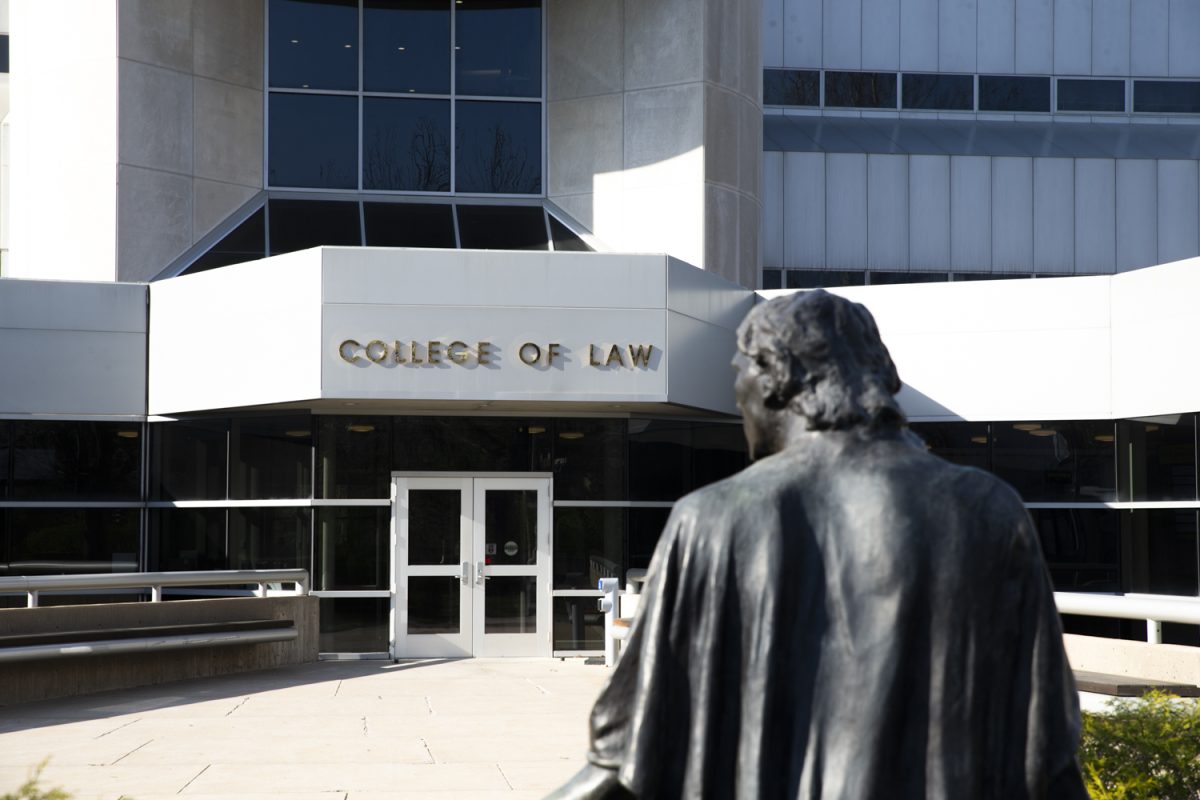Former Regent Michael Gartner wants streamlined curricula and more professors in the classroom, but University of Iowa faculty say they’re working more toward that goal than the former Board of Regents president thinks.
In a Sunday Des Moines Register opinion piece, Gartner said full-time UI faculty spend one-third of their work hours in teaching activities, passing too many courses onto graduate assistants and adjuncts.
"The teaching load — six hours or fewer of classroom teaching per week (up to nine at [the University of Northern Iowa]) — must be increased," he wrote. "Research is vital, but so is teaching."
That view, said UI Faculty Senate President Richard Fumerton, ignores both the amount of time professors spend with students outside the classroom and the effect of faculty research on the university’s funding and accreditation.
"Many faculty, in addition to regular teaching, advise undergraduates, have reading courses with grads and undergrads, and help with dissertations," the philosophy professor said. "If you look at the actual teaching that gets done — not just the official two courses per semester, but all the other teaching many faculty do — [it goes] far beyond what Gartner was suggesting."
Full-time faculty at the UI divide spend a roughly 40-40-20 ratio of teaching, research, and service work, which Gartner decried for putting too little time into teaching. Yet Fumerton emphasized these numbers don’t represent such a balance on a weekly or even a monthly basis.
"During the school-year semesters, an awful lot of faculty are spending considerably more than 40 percent of their time on teaching," he said.
Fumerton noted that research is critical for aiding teaching capabilities and building the university’s reputation among competing institutions, both directly beneficial to UI students — an opinion shared by UI Graduate College Dean John Keller.
"[The UI] has one of the highest levels of extramural research funds in country," Keller said. "And that requires a lot of faculty work, in not only funding itself but in supporting funds that aren’t coming from legislation or tuition or anything."
Such funds, wrote Gartner, should be put toward high-enrollment majors and programs while streamlining less popular courses.
"Iowa alone has around 150 majors and programs for undergraduates, from Sanskrit to microbiology, from ‘informatics’ to theater arts," he wrote. "All of this must be streamlined; the universities can no longer be all things to all people."
Though UI computer-science Professor Alberto Segre said he understands the regents’ financial concerns, he doesn’t see the point in targeting informatics — both an undergraduate division of the computer-science major and an independent graduate program.
"We actually have better registration in computer-science courses in informatics than the last several years," he said. "Given that employment prospects are very strong in technological fields, I don’t know why you’d want Iowa to be last in the nation."
Regent Robert Downer agreed with Gartner’s idea to resize extraneous programs. The UI could find other regent universities with similar small-enrollment courses and combine them as an online program, Downer said, a plan he intends to pursue.
"If we determine there are common threads in programs, we should look at combining them while making sure it’s not favoring or discriminating against any university," he said. " We do have to be conscious not only of a limit on [future] resources but with what resources we have."
Regent universities started allowing students to take courses offered by other regent universities in 2009.
The UI began streamlining classes through combining language programs into one division last year, followed by closing 13 graduate degrees since July 2009.
Such closures, said Keller, allow university officials to redirect faculty and funding into more efficient versions of the closed program.
"There is merit to ‘not all things to all people,’ " he said. "I there were majors that did not attract a large number of students, especially with grad programs or professional programs of some kind, or a high number of Iowa students, one would have to wonder why we offer those programs."






